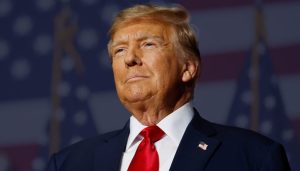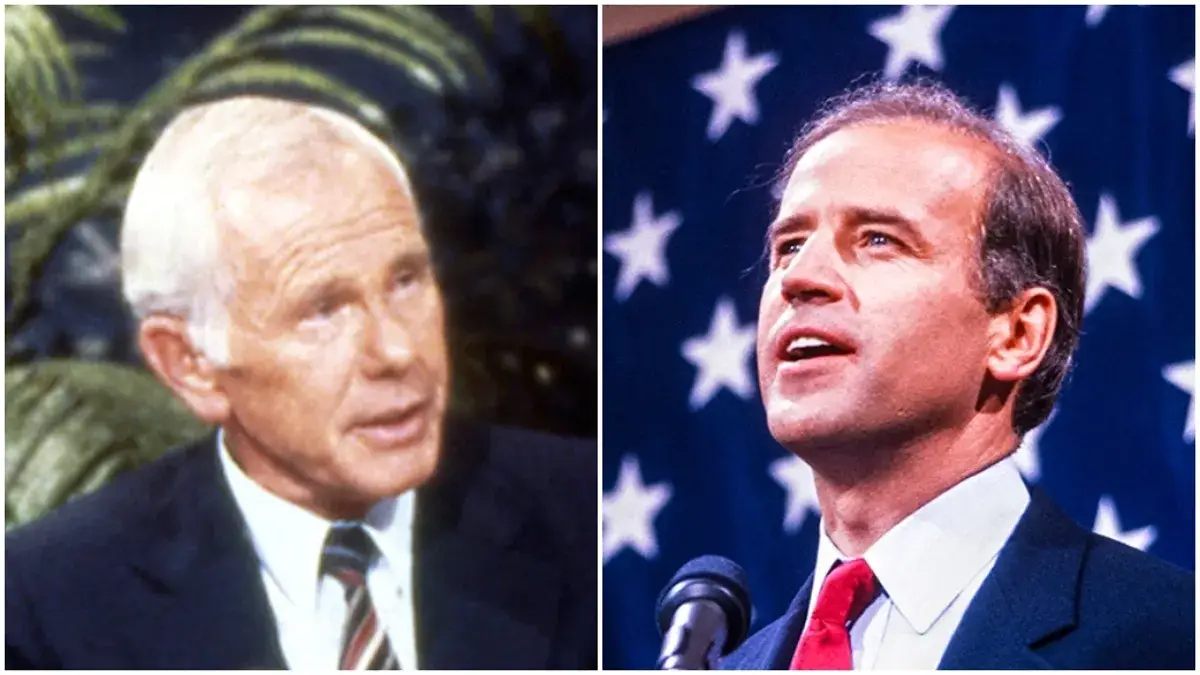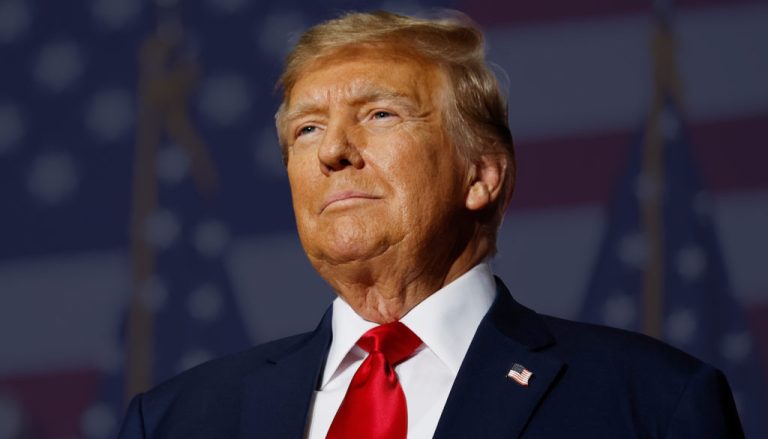A decades-old Tonight Show segment addressing political plagiarism allegations has found new life online, sparking discussions about late-night television’s evolution and political commentary
Note: The complete archived video segment discussed in this article can be viewed at the end of this piece.
Classic Late-Night Television Meets Modern Social Media
A television clip from nearly four decades ago has captured the attention of social media users, featuring legendary Tonight Show host Johnny Carson commenting on plagiarism allegations that emerged during Senator Joe Biden’s 1987 presidential campaign. The resurfaced footage has generated significant online discussion about both the historical political incident and the evolution of late-night television comedy.
The vintage segment showcases Carson’s distinctive style of political commentary, which differed markedly from today’s late-night television landscape. During an era when network television maintained different standards for political humor, Carson addressed the plagiarism controversy that ultimately contributed to Biden’s withdrawal from the 1988 presidential race.
Historical Context of the 1987 Plagiarism Controversy
The incident referenced in Carson’s monologue stems from a well-documented controversy that occurred during Biden’s first presidential campaign. In 1987, then-Senator Biden faced scrutiny from news organizations after similarities were identified between his speeches and those of other political figures, most notably British Labour Party leader Neil Kinnock.
The controversy began when reporters noticed substantial similarities between a speech Biden delivered at the Iowa State Fair and remarks previously made by Kinnock. The comparison extended beyond shared themes to include specific phrases and personal anecdotes that appeared to be directly borrowed without attribution. This discovery prompted journalists to examine other Biden speeches, leading to additional allegations of unattributed borrowing from speeches by Robert F. Kennedy and Hubert Humphrey.
The plagiarism allegations, combined with revelations about academic misconduct during Biden’s law school years, created sustained negative coverage that ultimately led to his decision to withdraw from the presidential race in September 1987. The incident became a significant moment in both Biden’s political career and the broader discussion of originality in political rhetoric.
Carson’s Commentary Style and Approach
In the resurfaced clip, Carson addresses the controversy with his characteristic wit and timing. The Tonight Show host explains the situation to his audience, noting that Biden had “quoted, I think it was a British politician, took his speech and kind of paraphrased it as his own.” Carson’s delivery demonstrates the measured approach to political humor that defined his tenure as America’s premier late-night host.
Carson’s commentary method involved presenting factual information about political developments before adding comedic elements. In this instance, he builds toward a punchline by referencing Franklin D. Roosevelt’s famous inaugural address phrase, “We have nothing to fear but fear itself,” suggesting hypothetically that Biden might appropriate even this iconic presidential quote.
This approach reflected Carson’s general philosophy of targeting political figures across party lines while maintaining a tone that was critical rather than malicious. His comedy style focused on the absurdity of political situations rather than personal attacks on individual politicians.
The Tonight Show’s Role in Political Discourse
During Carson’s tenure from 1962 to 1992, The Tonight Show occupied a unique position in American media landscape. As the most-watched late-night program, Carson’s monologue often served as many Americans’ first exposure to political news and commentary. His treatment of political topics helped shape public perception of political figures and events.
Carson’s approach differed significantly from contemporary late-night television in several key ways. He maintained a policy of avoiding explicit partisan endorsements, instead focusing on the comedic potential of political situations regardless of party affiliation. This bipartisan approach to political humor allowed him to maintain broad audience appeal while still addressing controversial topics.
The host’s influence extended beyond entertainment, as politicians recognized the importance of his commentary in shaping public opinion. A favorable mention on Carson’s show could boost a political career, while negative coverage could contribute to a politician’s difficulties, as may have been the case with the Biden plagiarism controversy.
Social Media Response and Contemporary Relevance
The recent circulation of this vintage clip on social media platforms has generated diverse responses from users across the political spectrum. Comedian Tim Young shared the footage on X (formerly Twitter), describing it as “Johnny Carson calling Joe Biden a fraud 36 years ago,” which demonstrates how historical content can be recontextualized for contemporary political discussions.
Many social media users have praised Carson’s comedic approach, with some expressing nostalgia for his style of political humor. Comments frequently contrast Carson’s methodology with current late-night hosts, suggesting that his bipartisan approach created more balanced political commentary. One user wrote appreciatively about Carson’s willingness to “make fun of both parties,” comparing this favorably to what they perceive as more partisan approaches in contemporary late-night television.
Other responses have focused on the historical significance of the plagiarism allegations themselves. Some users have expressed surprise that these decades-old controversies did not prevent Biden’s eventual election to the presidency, while others have used the clip to discuss broader questions about political accountability and media coverage.
Evolution of Late-Night Political Commentary
The resurfaced Carson clip highlights significant changes in how late-night television approaches political content. Modern late-night shows often take more explicitly partisan positions, with hosts frequently expressing clear political preferences and targeting specific parties or politicians more aggressively than Carson typically did.
Contemporary late-night hosts like Stephen Colbert, Jimmy Kimmel, and Seth Meyers have adopted approaches that differ markedly from Carson’s model. Their shows often feature extended political segments, explicit endorsements, and commentary that goes beyond pure entertainment to include advocacy and activism.
This evolution reflects broader changes in media consumption patterns, audience expectations, and the political climate. Where Carson operated in an era of limited television options and shared cultural experiences, today’s late-night hosts compete in a fragmented media landscape where audiences often seek content that confirms their existing political beliefs.
The Role of Archive Content in Digital Age
The circulation of this Carson clip exemplifies how digital platforms have transformed the lifecycle of media content. Television segments that once had limited lifespans now can resurface decades later to find new audiences and renewed relevance in contemporary discussions.
Social media algorithms and user-generated content sharing have created mechanisms for historical material to gain viral distribution, often recontextualized for current political or cultural conversations. This phenomenon allows past events and commentary to influence present-day discussions in ways that were impossible before widespread digital media adoption.
The preservation and accessibility of television archives through digital platforms have created new opportunities for historical analysis and comparison. Viewers can now easily access and compare how political figures and events were covered across different time periods, providing valuable context for understanding both past and present media practices.
Examining Media Standards and Journalistic Practices
The original 1987 plagiarism controversy occurred during a period when news organizations maintained different standards for political reporting and fact-checking. The investigation that uncovered the speech similarities exemplified traditional investigative journalism practices, where reporters compared source materials and conducted thorough research to verify claims.
The coverage of Biden’s plagiarism allegations demonstrated how news organizations of that era approached political accountability. Multiple news outlets independently verified the similarities between speeches and provided detailed analysis of the borrowed content, ultimately creating sustained pressure that influenced Biden’s decision to withdraw from the race.
Contemporary political media operates under different conditions, with accelerated news cycles, social media distribution, and changed audience expectations affecting how similar stories might be covered today. The Carson clip serves as a reminder of how political controversies were addressed in a different media environment.
Impact on Political Careers and Public Memory
The 1987 plagiarism controversy represents a significant moment in Biden’s political development, demonstrating how early career setbacks can be overcome through persistence and changing circumstances. Biden’s eventual election to the presidency nearly 35 years after this controversy illustrates the complex relationship between past political difficulties and long-term career trajectories.
The resurfacing of Carson’s commentary also raises questions about public memory and political accountability. Some social media users have expressed surprise that historical controversies did not prevent Biden’s later political success, while others have noted that political careers can recover from early setbacks through changed circumstances and evolved public perceptions.
Legacy of Johnny Carson’s Political Commentary
Carson’s approach to political humor established standards that influenced subsequent generations of late-night hosts, even as many have departed from his specific methodology. His emphasis on finding humor in political absurdity rather than promoting specific ideologies created a template for entertainment-focused political commentary.
The enduring appeal of Carson’s style, as evidenced by positive responses to this resurfaced clip, suggests that audiences continue to appreciate balanced approaches to political humor. This nostalgia may reflect dissatisfaction with more partisan contemporary approaches or simply appreciation for Carson’s distinctive comedic timing and delivery.
Conclusion: Historical Context in Contemporary Discussions
The viral circulation of this decades-old Carson clip demonstrates how historical content can gain new relevance in contemporary political discussions. The segment serves multiple functions: entertainment, historical documentation, and commentary on both past events and current media practices.
The clip’s popularity reflects ongoing interest in both Johnny Carson’s legacy and the evolution of political accountability in American media. It provides a window into how political controversies were addressed during a different era while simultaneously contributing to current discussions about media bias, political standards, and the nature of effective political commentary.
As digital platforms continue to preserve and circulate historical media content, similar rediscoveries of past commentary and coverage will likely continue to influence contemporary political discussions, providing valuable context for understanding both historical events and current political developments.
Watch the Complete Vintage Carson Segment
The complete Tonight Show segment referenced throughout this article, featuring Johnny Carson’s commentary on the 1987 Biden plagiarism controversy, can be viewed below. The clip demonstrates Carson’s distinctive approach to political humor and provides historical context for understanding both the original controversy and its contemporary relevance.

James Jenkins is a celebrated Pulitzer Prize-winning author whose work has reshaped the way readers think about social justice and human rights in America. Raised in Atlanta, Georgia, James grew up in a community that instilled in him both resilience and a strong sense of responsibility toward others. After studying political science and creative writing at Howard University, he worked as a journalist covering civil rights issues before dedicating himself fully to fiction. His novels are known for their sharp, empathetic portraits of marginalized communities and for weaving personal stories with broader political realities. Jenkins’s breakout novel, Shadows of Freedom, won national acclaim for its unflinching look at systemic inequality, while his more recent works explore themes of identity, resilience, and the fight for dignity in the face of oppression. Beyond his novels, James is an active public speaker, lecturing at universities and participating in nonprofit initiatives that support literacy and community empowerment. He believes that storytelling is a way to preserve history and inspire change. When not writing, James enjoys jazz music, mentoring young writers, and traveling with his family to explore cultures and stories around the world.









